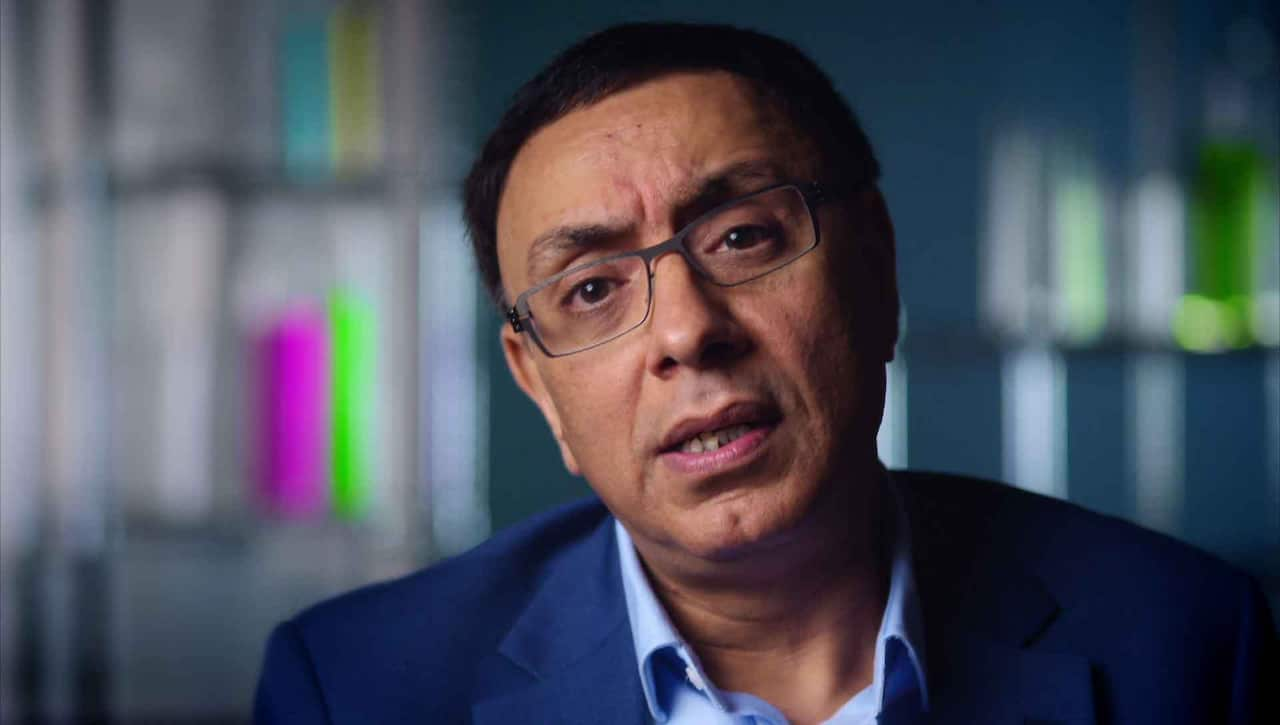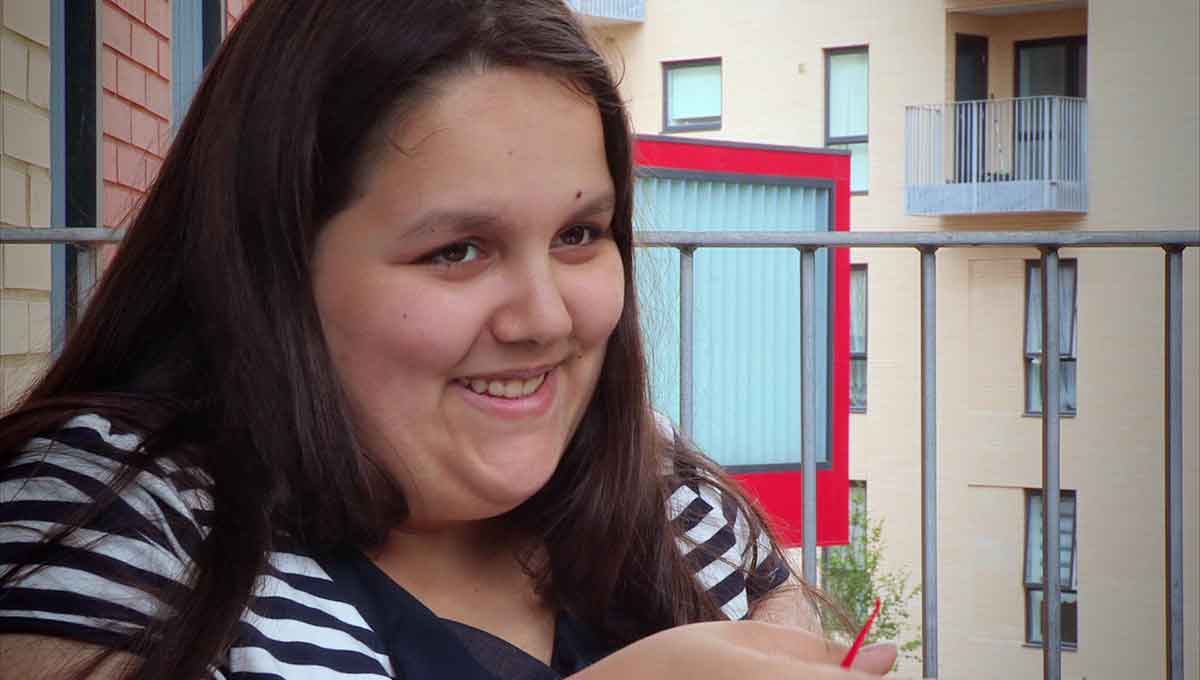The 120-kilogram teenager. The four-year-old who has tooth pain so bad it wakes her up at night. The young boy having 12 teeth removed because they are so decayed. The teenager who’s developed a fatty liver – something usually seen in middle-aged men. They are the faces of a generation where, in many developed countries, easy access to fatty, sugary convenience foods is causing multiple health issues.
In Junk Food Kids (8.30pm Thursdays on SBS, and on SBS On Demand, or watch the first episode below), diet and dental experts try to help children where diet has caused weight –related problems and badly decayed teeth.
Here, we sum up some of the advice the experts – dieticians, dentists, surgeons and psychologists – share with desperate families in this two-part documentary.
Brush up
Watching a child crying in his mother’s arms after having 12 teeth – three-quarters of his baby teeth - removed isn’t easy viewing. It’s horrible for his parents, who didn’t know letting six-year-old Marcus drink fruit juice would do such damage to his teeth. Professor Monty Duggal, Head of Paediatric Dentistry at Leeds Dental Institute, says dental decay is a huge problem. “By five years of age, 30 per cent - one in three children – have decay in their baby teeth, and in some parts of the country … that’s approaching 50 per cent,” he says in Junk Food Kids. “…And it’s shocking partly because it’s preventable.”
“Sweets, chocolates, sugary drinks – it’s those diets which are linked to decay, not good diets.” It not only rots teeth but causes pain. “These children should not be getting … this kind of rampant dental decay, ” the Professor says. Duggal is talking about the state of affairs in England, but it’s happening in some parts of Australia, too. Government statistics show that since 1996, there’s been an overall increase in the average number of children’s baby teeth and permanent teeth affected by decay among school-aged children using public school dental series. Research by the University of Adelaide in 2012-2014 found that one in four Australian children under 10 had untreated tooth decay.
Duggal is talking about the state of affairs in England, but it’s happening in some parts of Australia, too. Government statistics show that since 1996, there’s been an overall increase in the average number of children’s baby teeth and permanent teeth affected by decay among school-aged children using public school dental series. Research by the University of Adelaide in 2012-2014 found that one in four Australian children under 10 had untreated tooth decay.

Professor Monty Duggal: 100 per cent preventable. Source: Junk Food Kids
“It’s a 100 per cent preventable disease,” Duggal says in the documentary.
“If I’ve got one piece of advice to give a child, it would be brush your teeth twice a day with an adult fluoride toothpaste,” says Duggal. “If you’re not brushing properly, then even sensible eating can become dangerous for your teeth.”
Start right
One of the teens in the documentary is 13-year-old Danita, originally from Romania , who moved to the UK with her family four years ago, “People don’t judge you by the way you are, your character, they judge you by the way you look.” At nearly 16 stone, she’s nearly double the healthy weight for a girl her age. While her parents have tried to implement a healthier diet – her father, too, is suffering health issues due to his weight – they’ve not been able to stick with it. Sometimes, she snacks from the fridge in the middle of the night. “It’s hard not to eat what you want to eat,” she says, describing herself as “too addicted to junk food”. Her family are looking at stomach reduction surgery – a last resort for children her age. “We are now seeing children who are obese at a much younger age, and therefore they are developing diseases which we used to see only in adults,” says Mr Ashiel Desai, a pediatric surgeon at King’s College Hospital, where surgery has become the last resort for children as young as 13.
“We are now seeing children who are obese at a much younger age, and therefore they are developing diseases which we used to see only in adults,” says Mr Ashiel Desai, a pediatric surgeon at King’s College Hospital, where surgery has become the last resort for children as young as 13.

Danita: trying to eat well. Source: Junk Food Kids
“It’s extraordinary that we are offering bariatric surgery to young people,” says clinical psychologist Dr Lucy Stirling in Junk Food Kids. “Parents can be in denial… of the part they may have played, but children need to be brought up to eat in such a way that they are nurturing their body, rather than slowly damaging it.”
Team effort
Making healthy choices can be too much if a child has to do it alone, says Gately, who advises one mother that tough as it can be, setting firm boundaries might be the only way.. The experts also say that sometimes, you just can’t have junk food in the house.
Professor Paul Gately, a youth obesity consultant, explains in the documentary that for some parents, comforting and nurturing their children translates into providing big plates of food. “We’ve got to take them out of that mindset”. Because if children become obese, the outlook can be grim. “Ninety per cent of kids who become obese don’t change that,“ Professor Gately says.
But it’s not as simple as saying parents are to blame.
“Parents have a responsibility, but so do other segments of our society,” Gately says. “It is, I would argue, a complete embarrassment to the educational and health care systems of the western world that for the most common disease in our population, we watch it get worse. We need to act. It isn’t something we can stick out head in the sand about.”
“Our kids are having to have teeth extracted because of how much love we’ve shown them,” says one dad in Junk Food Kids. “We are to blame, but shops are to blame, governments are to blame, people who make the candy and the sweets, they are to blame.
“It’s hard to go into a shop and find something that won’t rot the kids’ teeth, won’t make them hyper.”
For the children in this documentary, many different things are tried. But it’s clear that for anything to work, parents need to be on board.
“The most important factor in a child losing weight is support,.” says Sarah Heath, a paediatric dietician at Kings’ College Hospital. “Now that can be from the family, from health care professionals, it can be from schools, but obviously families are going to play a really really big role.”
Watch episode one of Junk Food Kids here, and then watch the final part of this two-part series Thursday September 21 8.30 pm on SBS:
Share
SBS Food is a 24/7 foodie channel for all Australians, with a focus on simple, authentic and everyday food inspiration from cultures everywhere. NSW stream only. Read more about SBS Food
Have a story or comment? Contact Us

